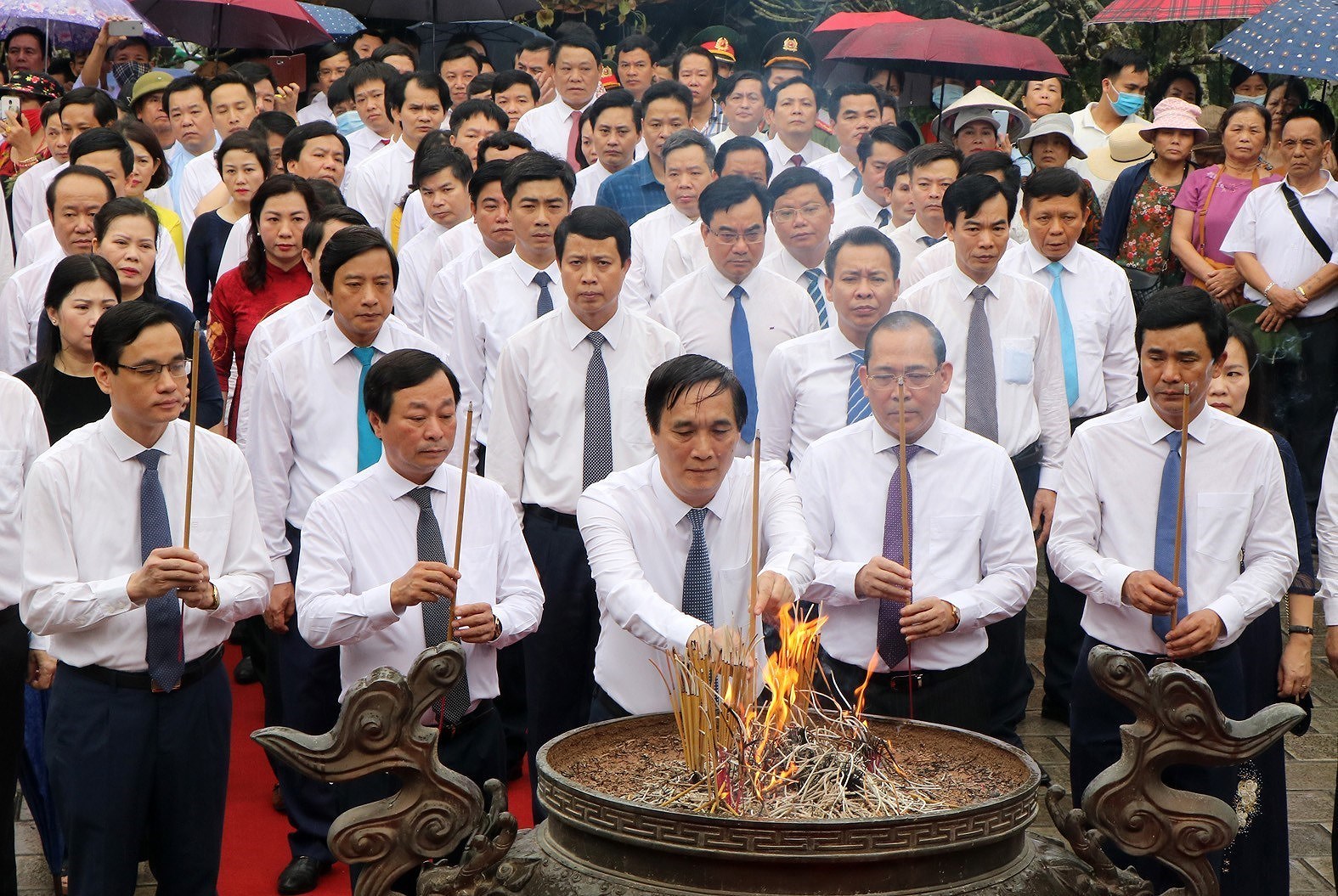The administration of northern Phu Tho province held ceremonies on April 17 to commemorate the legendary ancestors of Vietnam, Father Lac Long Quan and Mother Au Co.
 Officials of Phu Tho province offer incense at the temple dedicated to Mother Au Co on April 17 (Photo: VNA)
Officials of Phu Tho province offer incense at the temple dedicated to Mother Au Co on April 17 (Photo: VNA) – The administration of northern Phu
Tho province held ceremonies on April 17 to commemorate the legendary ancestors
of Vietnam, Father Lac Long Quan and Mother Au Co.
Traditional rituals were
conducted at the temples dedicated to Lac Long Quan and Au Co in the Hung Kings
Temple relic site to express gratitude to the ones who laid the foundations of
the country.
Every year, activities worshipping
Lac Long Quan and Au Co take place ahead of the death anniversary of the
Hung Kings, believed to be the very first founders of Vietnam, on the 10th day of the third lunar month (which falls on April 21 this year).
Legend has it that Lac Long
Quan (real name Sung Lam, son of Kinh Duong Vuong and Than Long Nu) married Au
Co (the fairy daughter of De Lai). Au Co then went on to give birth to a pouch
filled with one hundred eggs, which soon hatched into a hundred sons. However,
soon thereafter, Lac Long Quan and Au Co separated. Lac Long Quan went to the
coast with 50 of the children, while Au Co went to the highlands with the rest.
Their eldest son was made king, who named the
country Van Lang and set up the capital in Phong Chau (modern-day Viet Tri city
in Phu Tho province), beginning the 18 generations of the Hung Kings.
The kings chose Nghia Linh Mountain, the highest
in the region, to perform rituals devoted to rice and sun deities to pray for
healthy crops.
To honour their great contributions, a complex of
temples dedicated to them was built on Nghia Linh Mountain, and the 10th day of
the third lunar month serves as the national commemorative anniversary for the
kings.
The worship of the Hung
Kings, closely related to the ancestral worship
traditions of most Vietnamese families, was recognised as part of the Intangible
Cultural Heritage of Humanity by UNESCO in 2012./.